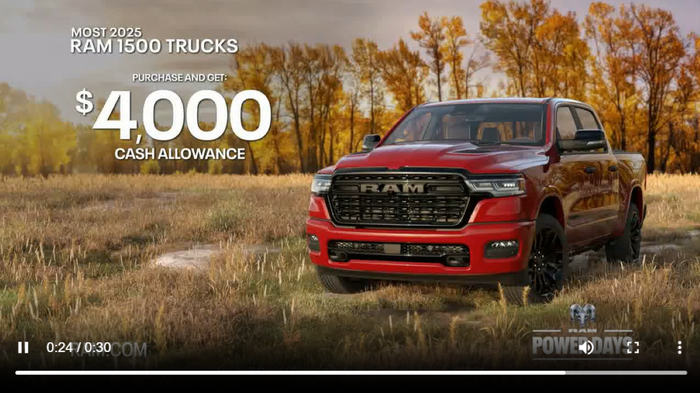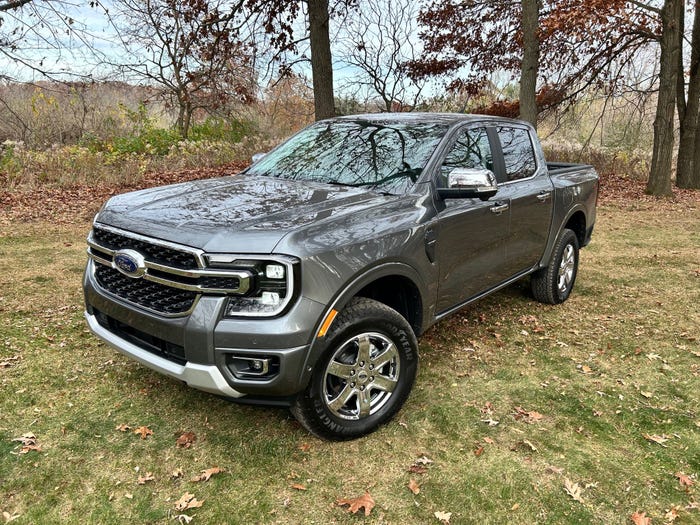Why Test Drives Can Turn Ugly
Nobody, no matter how respectable they may look or act, should drive away in a demo car unless accompanied by a dealership staffer.


A test drive is a vital part of a car dealership’s step-selling process. It allows the customer to get to know the car and enhances the chances of a sale.
But the demo drive comes with risks to the dealership. Few other businesses allow customers to leave with products like that. Imagine an Apple store letting prospective buyers walk out with iPhones to test their functions on the street.
Yet every day across the Republic, dealerships accommodate people who walk in and ask to take a car for a spin.
Not everyone is obliged, of course. A 16-year-old kid, strolling into a dealership on his own and asking to check out a Maserati, probably won’t get those keys.
Yet, some car stores are surprisingly lax about test drives, such as seven dealerships in Indianapolis. Over six weeks, each was burned by a young woman with fake ID and a predilection for taking vehicles but not bringing them back.
You’d think word about her criminal behavior might have gotten around town enough so that she couldn’t chalk up her fourth or fifth steal, let alone the sixth and seventh.
But in some ways, it’s the same old story. She pulled it off because she looked innocent and spoke politely. “You would have no idea,” one of the victimized sales managers told a local TV station.
Here’s a tip, though. Con artists typically appear guiltless and act charming. It’s part of the ploy. They don’t play the part by talking crudely, sporting neck tattoos and dressing in prison garb.

A few years ago, a former corrections officer test-drove an $88,000 BMW 7-Series, and apparently liked it so much he decided to keep it, without going through the bother of the buying part.
He got the car during a New York dealer’s promotional event in which BMW donated $1 to cancer research for every mile put on a test-drive car. Two weeks later, police arrested the guy in the vehicle on Staten Island.
He had a creative defense. His attorney said he thought he was helping the cancer-research fundraiser by putting lots of miles on the missing car’s odometer.
But a few months earlier, he was charged with criminally possessing a $90,000 Mercedes-Benz that had been reported stolen in Manhattan. No word on what good cause he was trying to aid there.
It’s easy for dealers to fight demo-car thievery. Nobody, no matter how respectable they may look or act, should drive away in a test car unless accompanied by a dealership staffer.
It’s more than just crime prevention. It also is a question of reducing dealer liability. Without precautions, demo drives can turn ugly.
Risks don’t disappear just because a salesperson is in the car, but the unpleasantness odds go down.
“Test drives are necessary, but they are not without risks and exposure to dealers,” Charles Arrambide, a Zurich Insurance vice president, told me. “A dealer can get sued for something that happened on a test drive.”
Accidents are common liabilities. Some of them are real mishaps. Other times, “shoppers” granted unaccompanied test drives stage collisions. They then file bogus medical claims against the dealership.
Arrambide recommends a test drive follow an established route that avoids dangerous roads and intersections. Sales people along for the drive should make sure customers don’t flagrantly violate traffic laws.
And although this one may seem like a no-brainer, impaired drivers should not be out testing dealership vehicles.
Risk reduction aside, there’s another important reason a salesperson should join a shopper on a test drive: to use that time together to sell the car while it is in operation.
It is ineffective to just send customers out on their own, hoping they will discover the finer points of a vehicle.
Sure, it’s bad when someone fails to come back from a solo test drive because the dealership carelessly gave them such free access to a vehicle.
But it’s not so hot when a customer returns from a demo drive and doesn’t buy because a salesperson wasn’t with them, pointing out features and benefits during one of the most important steps in the selling process.
Read more about:
2011About the Author
You May Also Like





